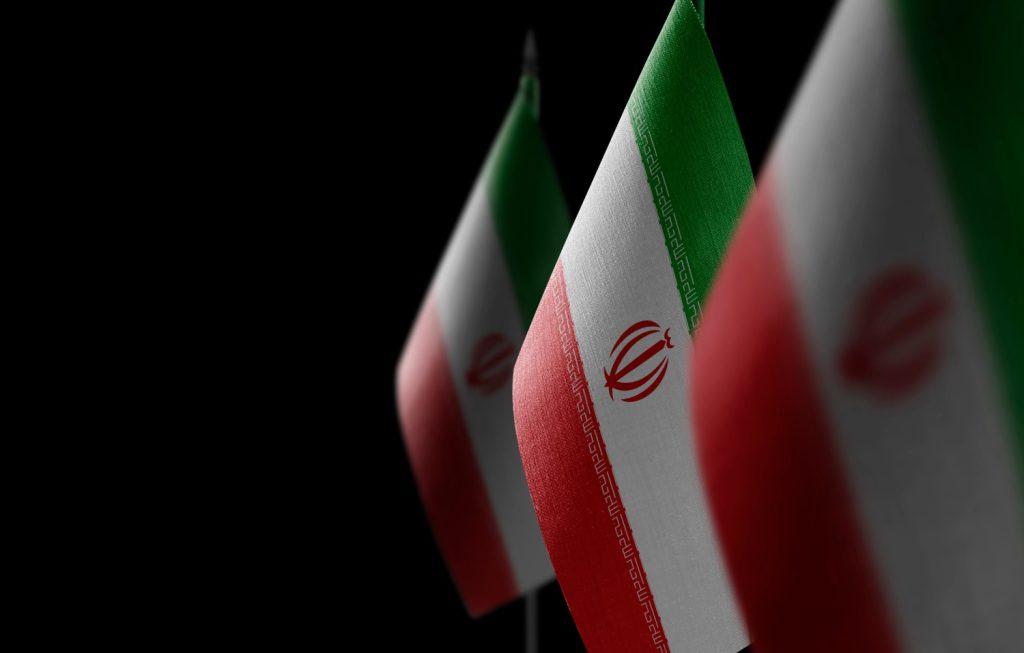IN THE MEDIA
A new coalition against Iran
May 6, 2024 | Colin Rubenstein

Canberra Times – 6 May 2024
Iran’s massive, unprecedented April 14 attack against Israel was a watershed event, combining the first-ever direct fire upon Israel from Iran itself with attacks from nearly all of Iran’s numerous proxy armies across the Middle East.
For years, Iran has been orchestrating a vast plan to encircle Israel militarily and attack it constantly – openly saying this is intended to destroy Israel by 2040. Teheran’s ability to hide behind the proxies it finances, trains, arms and largely controls, with impunity for this blatant aggression, should now end.
Iran attacked to retaliate for the April 1 killing of seven Islamic Revolutionary Guard Corps (IRGC) officers in a Damascus building adjacent to the Iranian Embassy, reportedly by Israel.
Chief among them was the IRGC’s highest-ranking commander in the region, General Mohammad Reza Zahedi, in charge of coordinating Iran’s network of proxy militias in Syria and Lebanon.
As the only non-Lebanese member of Hezbollah’s decision-making Shura Council, Zahedi held tremendous influence over its attacks on Israel’s north, which have been daily since October 8, and forced the continued evacuation of more than 60,000 Israelis.
Also killed were Zahedi’s deputy and chief of staff. These men were central to Iran’s ongoing, unprovoked war of aggression against Israel.
The IDF strike wasn’t only legitimate, but effective – seriously disrupting Iran’s coordination with Hezbollah, and also Hamas, Palestinian Islamic Jihad, Iraqi militias and the Houthis.
Given Iran’s openly declared multi-front war of aggression, for Israel to attack IRGC officers, as well as focus on the proxies they command and use as cannon fodder, is both tactically and morally a sound strategy.
Iran’s retaliation, however, was unquestionably reckless. Contrary to some misguided reports, it wasn’t symbolic or intended to fail, deploying slower drones as a diversion for 150 cruise and ballistic missiles carrying warheads of up to one tonne.
Israel’s extensive missile defences and a US-led coalition including the UK, France, and, significantly, Jordan and Saudi Arabia shot down almost all the projectiles, with only one Israeli – a young Bedouin girl – injured, and an airbase slightly damaged. In US President Biden’s words, this was a “win” for Western allies in their first head-to-head confrontation with Iran.
The defence against Iran’s attack was so effective that Israel was pressured not to respond. These calls were misplaced because defence – even the best defence – doesn’t deter aggressors. Failing to respond would have very likely led to future attacks.
Israel’s right to defend itself, including choosing how and when to respond, should have been supported in principle. In the event, Israel’s calibrated response deterred Iran without triggering its need to immediately escalate, hitting part of an air defence system in the Iranian city of Isfahan, near a military base and important nuclear facilities. This demonstrated to Iran that it couldn’t prevent Israel from striking its most important facilities, but still allowed the regime to downplay the attack and declare the episode closed.
However, Iran will continue directing its terror proxies against Israel, and Israel will act to inhibit its ability to do so, as it did on April 1. So to minimise the risk of further military escalation, international especially this new coalition so effective in thwarting Iran’s April 14 drone and missile attack on Israel – must also find other ways to ensure Iran internalises that its blatant aggression will incur serious costs.
The US and UK have already taken the initiative, announcing new sanctions targeting Iran’s missile and drone programs and entities that support the IRGC and Iran’s Defence Ministry. Washington said it expects US allies to add their own sanctions – and some European states are reportedly preparing to do so.
Indeed, efforts should now also be made by this new coalition to stop Iran from circumventing the sanctions imposed on its oil exports as well as exposing and undermining its elaborate, covert money-transferring network.
The Albanese Government, which warned Iran not to attack Israel and appropriately condemned the attack, should go beyond mere rhetoric, and answer Washington’s call. In particular, with the IRGC mainly behind these attacks, it seems more than timely to now move to implement last year’s Senate Committee recommendation to list it as a terrorist organisation.
New sanctions should just be a curtain-raiser to a much broader policy shift for the US, EU and allies regarding Iran’s nuclear program, which today stands on the cusp of weaponisation.
As former International Atomic Energy Agency deputy director Olli Heinonen wrote after Iran’s April 14 attack, “Imagine the impunity with which Iran might act if it felt emboldened by possession of a nuclear umbrella.”
Heinonen says it’s not too late to pressure Iran into a workable nuclear deal that, under tight supervision, could stop a nuclear breakout. However, given Iran’s proximity to building a bomb, that pressure “must be backed not only by sanctions but also by the willingness to take military action.”
Before its April 14 attack, the West could perhaps turn a blind eye to the malevolent actions of Iran’s proxies and hope to quietly manage Iran’s aggression. That unprecedented attack showed such beliefs are delusional. What must therefore change dramatically, before it’s too late, is an effective response to Iran’s destructive and dangerous path from all nations committed to a stable international order – not only the US and Europe but also Australia.
Dr Colin Rubenstein, executive director, Australia/Israel & Jewish Affairs Council (AIJAC)
Tags: IRGC, Iran, Israel, Middle East





